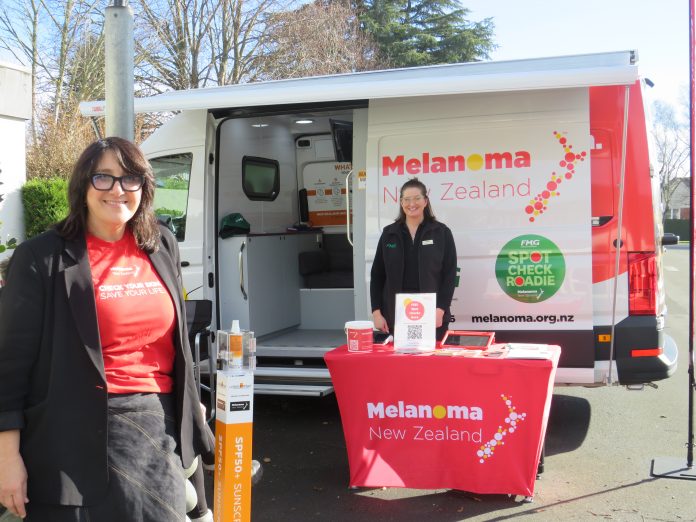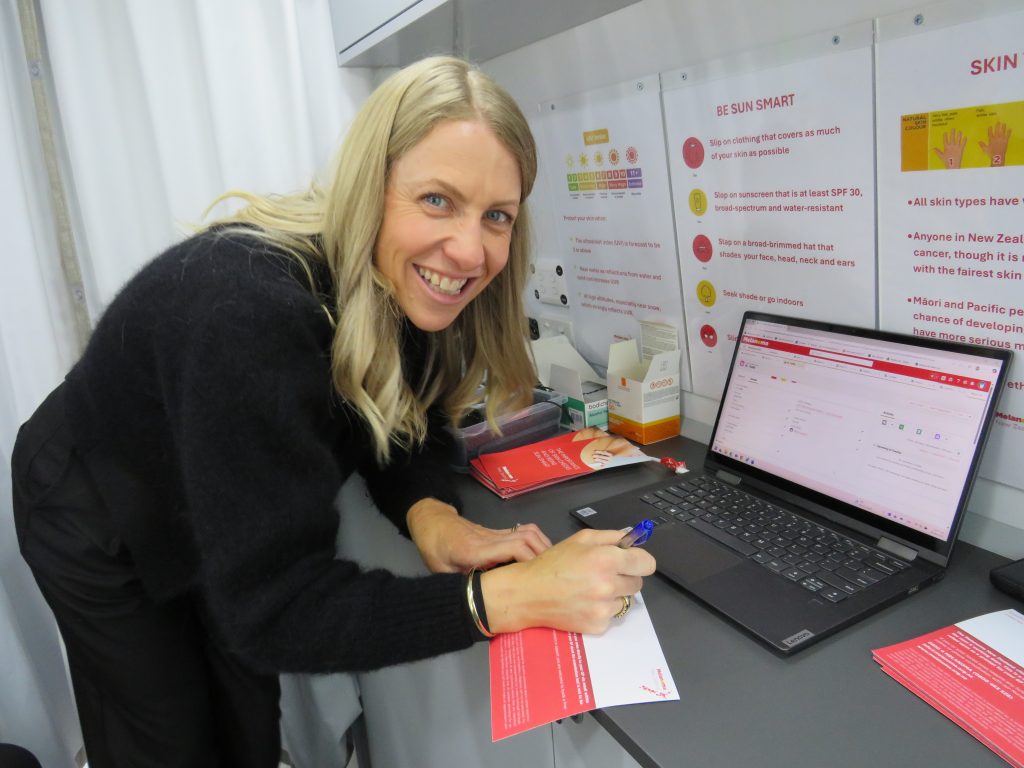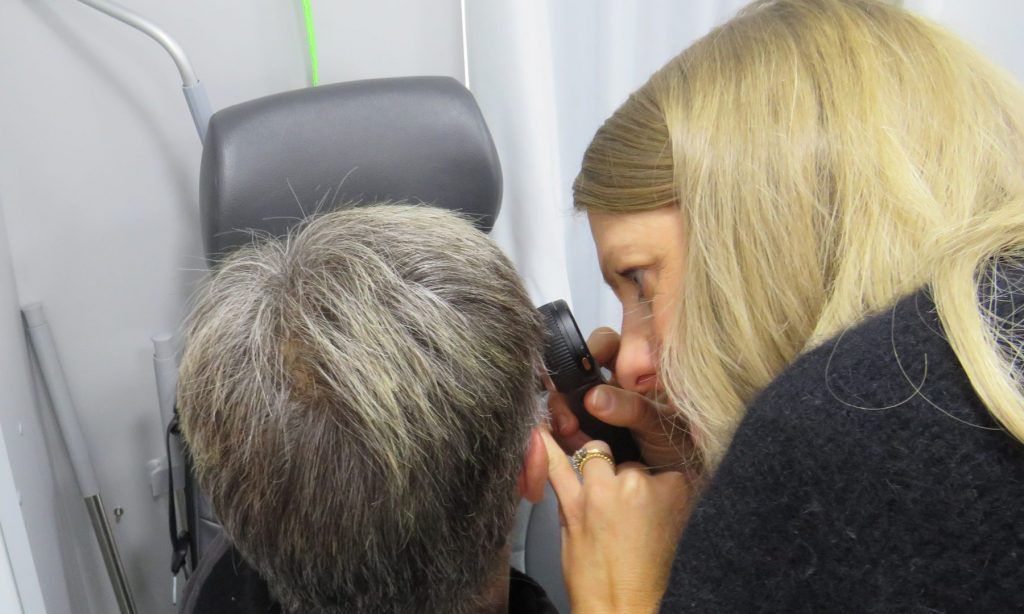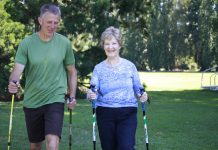
New Zealand has one of the worst rates of melanoma in the world with more than 7000 diagnoses each year and around 300 deaths, Melanoma New Zealand chief executive officer Andrea Newland says.
‘‘But melanoma can be preventable and, if caught and treated early enough, it’s almost always curable,” she said.
Newland was in Ashburton recently for the launch of a new South Island-based mobile spot check van; 58 people had spots checked.
During the session, nurse educator Abbie Cameron found eight suspicious lesions including one suspected melanoma.
“This van is a superb educational resource that will enable us to strengthen our messages around the country, and it will help save even more lives,’’ Newland said.
“We are so grateful to FMG and the Lion Foundation for their funding and for helping us champion melanoma prevention and early detection.”

Among those who had early detection was retired landscape gardener Allan Sinclair, of Ashburton.
He has had six moles excised from his body this year; the latest on Tuesday.
There were found during a pop up clinic in Ashburton earlier this year.
He had melanoma spots on his cheek, forearm, upper arm, collarbone and two on his back.
The worst, on his upper arm, was recorded as a grade two melanoma. Grade four is the worst, he said.
‘‘It was pretty dark. It had been there for a quite a while,’’ Allan said.
‘‘Two is bad enough, but it didn’t get to the nymph nodes, they weren’t concerned about that. But if you get to grade three then it’s a lot more serious.
‘‘I just got that one in time.’’
Allan, aged 70, worked outdoors in his profession for 20 years.
He wore a cap but said his legs and arms were exposed on a daily basis.
He said the concern of his wife, Mary, saw him booked into see a Melanoma New Zealand nurse educator earlier this year.
The organisation had a pop in clinic set up at Ruralco.
‘‘I went and saw her, and she said, ‘No you better go see a doctor quickly’.
‘‘So that’s what I did. That was the start of it,’’ he said.

Allan said Cheryl at Lotus Skincare in Methven took samples of five of his spots.
And all five returned as different grades of melanoma.
He has had multiple visits to Burwood Hospital to excise them; three times to clear his cheek.
He has a follow up every four months and had a full body check which found the sixth one on his back.
‘‘He said he wasn’t really worried about it, but he’s going to take it out because of my record,’’ Allan said, of the doctor.
‘‘That’s peace of mind for me too.’’
Allan will find out the results of the latest one in a couple of weeks.
He encouraged others to get their moles checked by specialists, and be aware of new moles appearing, or those which had changed in shape or colour.
It was worth getting them checked too.
Melanoma NZ chief executive Andrea Newland said the van was made possible through funding from Melanoma New Zealand partner FMG, and the Lion Foundation.
It would be staffed by a nurse educator and communities, including remote and rural areas where many people worked outdoors and could be at a higher risk of developing a melanoma.
‘‘Our partnership with FMG is critical in helping us reach these at-risk rural communities,” she said.
Notes from checks were given to patient’s on the day and sent to their GPs for further evaluation and treatment, and the nurse educator also followed up with those who had suspected melanoma.
FMG chief marketing officer Pete Frizzell said FMG was focused on building strong and prosperous rural communities and investing back into the communities where it operated.
‘‘Helping to raise awareness and prevent melanoma for those at higher risk, like many of our farmers and growers who work outdoors, is just one way we do this.”
“The new van means there are now vans for both the North and South Islands so we can provide many more free spot checks for rural New Zealanders as part of the FMG Spot Check Roadie.”
A list of upcoming locations can be found at: melanoma.org.nz/spot-check-events/ or more information at melanoma.org.nz
Detection: The first sign of melanoma is often a change in the size, shape or colour of an existing spot, or the appearance of a new spot. If melanoma is recognised and treated early enough, it is almost always curable.



